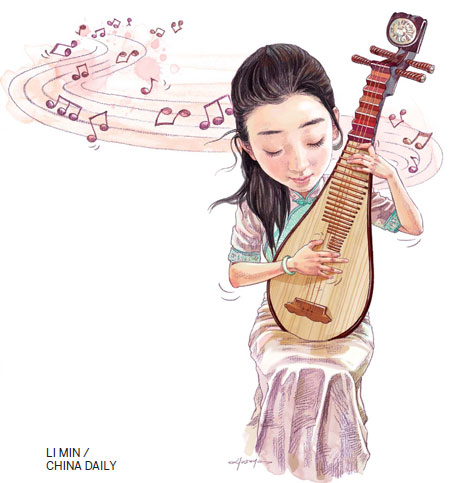Message and the medium
Updated: 2012-04-06 08:42
By Liu Lu, Wang Chao and Fu Jing (China Daily)
|
||||||||

Nation needs to mobilize its soft power resources to win more hearts, minds
Kung fu, pandas or Peking opera are what one would commonly associate with China- but they are also vital cogs in a massive "soft power" exercise that China hopes will give it more global voice and an image makeover. It is also proving to be a tough challenge for policymakers, as the growth of the country's "soft power" has not been in tandem with that of its "hard power".
|
||||
So why all this brouhaha about "soft power", one may ask.
The answer can be found in the realms of the foreign strategy of China that advocates peaceful coexistence along with robust economic growth.
But with so many ingredients that make up the dish called "soft power", there are also doubts as to what should be the driving force for this collective vehicle. Policymakers believe that the real key to soft power lies in bolstering cultural productions and expanding the global cultural footprint.
Lending further credence to this view is the statement made by Chinese President Hu Jintao in the first 2012 issue of Qiushi (Seeking Truth), a bi-monthly political theory periodical published by the Central Committee of the Communist Party of China. Hu writes that cultural strength is the basis of China's soft power and competitiveness on the international stage.
The opening of the first Confucius Institute in Seoul in 2004, or the expanding presence of Chinese media companies overseas, or even the ongoing first-ever Chinese Culture Year in Germany, are all indicative of the steps taken by China to spruce up its international image and soft power.
"China should use culture as a diplomatic platform to enhance its image and project its soft power," China's Culture Minister Cai Wu said at a recent news conference.
"There is no doubt that China has impressed the world with its booming economy. But that alone is not enough," says Yu Guoming, journalism professor at the Renmin University of China.
Yu feels that Chinese decision-makers are now looking to give the world a better picture of China through the appeal of its culture. To some extent, this also explains the buzz of activity associated with the culture sector, he says.
"Culture is fast emerging as the crucial indicator of China's competitiveness in the contemporary world."
With China's influence growing steadily, the thrust for the future is not only to export more goods, but also showcase the life and culture of the nation to the rest of the world.
According to information provided by the General Administration of Customs, in 2011, China's exports of cultural products hit a new high of $18.7 billion (14 billion euros), an increase of 22.2 percent over the previous year. Industry experts believe that this robust growth momentum will grow substantially in line with the nation's plans to boost its "soft power".
"China wants to forge greater trust with the world, especially through more cultural exchanges, as it helps build the global image of a peaceful rising power," says Martyn Davies, chief executive of Frontier Advisory, a leading research and strategy firm from South Africa that specializes on the emerging markets.
Davies says that China has one of the most ancient cultures in the world, and more cultural contacts will help the country learn international communication rules thereby reducing misunderstandings and stereotyped bias.
"The world also has a curiosity and urge to better understand China rather than just its economic strength," Davies says.
"Other countries' interests in China's politics and economy have inevitably extended to the cultural area."

 Relief reaches isolated village
Relief reaches isolated village
 Rainfall poses new threats to quake-hit region
Rainfall poses new threats to quake-hit region
 Funerals begin for Boston bombing victims
Funerals begin for Boston bombing victims
 Quake takeaway from China's Air Force
Quake takeaway from China's Air Force
 Obama celebrates young inventors at science fair
Obama celebrates young inventors at science fair
 Earth Day marked around the world
Earth Day marked around the world
 Volunteer team helping students find sense of normalcy
Volunteer team helping students find sense of normalcy
 Ethnic groups quick to join rescue efforts
Ethnic groups quick to join rescue efforts
Most Viewed
Editor's Picks

|

|

|

|

|

|
Today's Top News
Chinese fleet drives out Japan's boats from Diaoyu
Health new priority for quake zone
Inspired by Guan, more Chinese pick up golf
Russia criticizes US reports on human rights
China, ROK criticize visits to shrine
Sino-US shared interests emphasized
China 'aims to share its dream with world'
Chinese president appoints 5 new ambassadors
US Weekly

|

|










